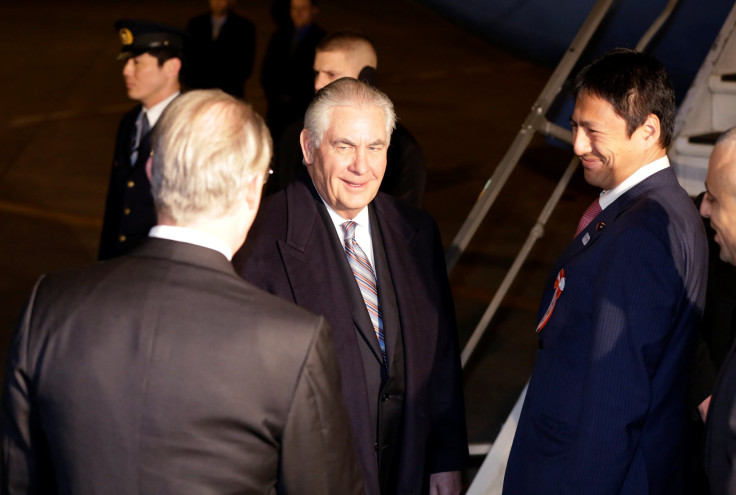Where Is Rex Tillerson? Starting New US Foreign Policy, Asia Trip Details

After largely keeping a low profile since his confirmation, Secretary of State Rex Tillerson on Wednesday began a nearly weeklong trip to Asia as the Trump administration began redefining the U.S. role in the region and turning away from the Obama administration’s so-called Asia pivot.
The former Exxon Mobil CEO arrived in Japan and has planned stops in South Korea as well as China. Each country presents challenges not only for the early months of Trump’s presidency but also Tillerson’s potential for the shaping U.S. foreign policy as the new administration already announced it was backing away from Obama’s pivot.
Read: Not Having Children Could Cause Early Death
Still, exactly what new policy would take form remained unclear.
“Pivot, rebalance, etcetera — that was a word that was used to describe the Asia policy in the last administration. I think you can probably expect that this administration will have its own formulation. We haven’t really seen in detail, kind of, what that formulation will be or if there even will be a formulation,” Acting Assistant Secretary of State Susan Thornton told reporters Tuesday.
Thornton added security, trade policies and maintaining order in the region were priorities.
“We’re going to remain engaged and active in Asia. The Asian economy is very important for U.S. prosperity and growth, so we will be there working on fair trade and free trade issues, working on regional security challenges such as North Korea, and continue to press for a rules-based and constructive, peaceful and stable order in Asia,” Thornton said. “Whether there will be a bumper sticker to put on that, it’s still early days, so it’s early to say.”
Despite the announcement of a shift in policy, staffing for the new administration’s diplomatic posts has stalled. Defense News pointed out many of the top Asia-Pacific policy jobs were still vacant and Trump’s pick for ambassador to China hasn’t even had his confirmation hearing yet.
Tillerson, too, has remained largely a mystery to both outsiders and even those in the White House. The New York Times reported Saturday Tillerson has been absent from meetings with world leaders, hasn’t taken questions from reporters since he took office and didn’t respond to Trump’s proposed 37 percent cut to the State Department’s budget.
Read: U.S. Invading North Korea?
But it’s possible Tillerson could have a strong impact on his trip to Asia. After Japan, he is scheduled to head to South Korea on Friday and will then head to China. All three nations represent a key cog in overall diplomacy and also when it comes to North Korea’s nuclear proliferation, which NPR indicated was a top priority for Tillerson’s trip.
"Liberals think you engage North Korea," John Delury, professor of international relations at Yonsei University, told NPR. "You draw them out. You have dialogue. You work on denuclearization but you have to work on a lot of other issues at the same time."
© Copyright IBTimes 2024. All rights reserved.





















